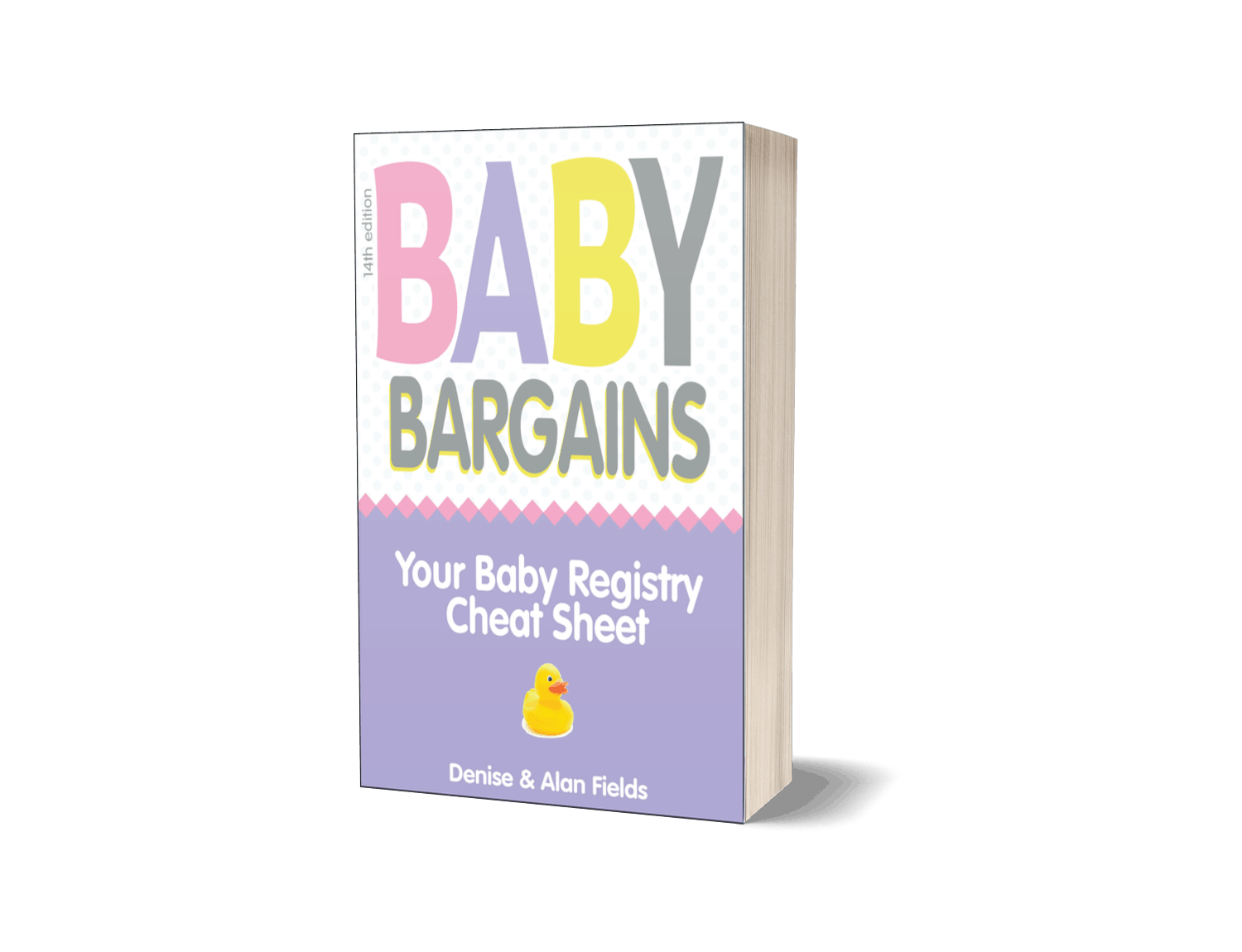They were like zebras! They had us confused!
In our continuing coverage of the baby bottle/BPA controversy, the latest salvo comes from the Juvenile Products Manufacturers Association (JPMA) which issued a statement about Canada’s proposed ban on polycarbonate baby bottles (see full statement below).
The JPMA is now in the Confused stage of grief, mourning the passing of the polycarbonate bottle. How can we tell? The JPMA’s statement includes not one, but TWO expressions of "confusion" over what Canada is doing:
"Based on the information presented today by Health Minister Tony Clement and his panel of experts, we’re confused as to the reason for the ban."
And
"We’re clearly confused and very disappointed as to their decision to ban polycarbonate baby bottles without significant evidence that BPA causes any harm to humans."
We can understand why the JPMA is so "confused" here—together with the American Chemistry Council, they have put out numerous press statements that say, essentially, BPA bottles are SAFE! Because the cherry-picked studies they cite say so! And the FDA says polycarbonate bottles are SAFE!
Sure, they can ignore the NIH report. Or declare that the NIH’s "some concern" comment really isn’t SERIOUS concern—but sooner or later, the crushing reality of studies that show potential harm just keep creeping into the JPMA’s sub-conscious. And that is so confusing!
We smell a PR campaign tactic here. Notice how the American Chemistry Council spokesperson (on NBC’s Today Show today) calls the situation with baby bottles so "confusing." (Watch the video here). So, is this the best you can do, boys? Make it sound like the Canada decision is really just a crazy, confusing event—and we should wait until the FDA weighs in?
In their statement, the JPMA urges parents to contact bottle makers for info . . . like Playtex. Wait, don’t go there! Playtex has just announced it is dropping BPA in all its products by year’s end.
Meanwhile, this leaves the JPMA with just two, rather unpleasant options:
• Declare war on Canada. Hey, it worked for South Park.
• Sponsor this summer’s Weird Al concert tour, where he will sing this song:
The Juvenile Products Manufacturers Association (JPMA), which represents the baby bottle manufacturers in the United States and Canada, is extremely disappointed in Health Canada’s announcement today calling for a ban of polycarbonate baby bottles containing bisphenol A (BPA).
"Based on the information presented today by Health Minister Tony Clement and his panel of experts, we’re confused as to the reason for the ban. During the conference call, it was repeated numerous times that parents shouldn’t worry and that the risk of exposure to BPA is extremely low," said Mike Dwyer, CAE, executive director of JPMA. According to Health Canada’s announcement, "The scientists concluded in this assessment that bisphenol A exposure to newborns and infants is below levels that may pose a risk."
"Health Canada has been arbitrary in their decision to ban products despite the fact that they have acknowledged that exposure levels to BPA for infants from polycarbonate baby bottles are well ‘…below levels that could cause harmful affects,’" said Dwyer. "We’re clearly confused and very disappointed as to their decision to ban polycarbonate baby bottles without significant evidence that BPA causes any harm to humans."
Consumers can rest assured that plastic baby bottles are safe. In fact, sound and respected scientific research has consistently shown there is no danger to consumers when products are used as intended. Trace levels of bisphenol A from consumer products are well below any level that could cause harm to adults or to our children.
In spite of this strong scientific support, misinformation about polycarbonate baby bottles continues to circulate and as a result is needlessly scaring parents and caregivers away from a trusted and safe product. Several studies provide additional strong support for the safe use of polycarbonate bottles:
— The National Toxicology Program’s (NTP) Center for the Evaluation of Risks to Human Reproduction recently released a draft NTP Brief on bisphenol A which affirms that there are no serious or high level concerns for adverse effects of bisphenol A on human reproduction and development. The NTP Brief confirms that human exposure to BPA is extremely low and noted no direct evidence to BPA adversely affects reproduction or development.
— TNO, a prominent Dutch Research organization, subjected 18 different brands of polycarbonate baby bottles sold in Europe to a series of tests to determine the level of BPA that migrates under real-life microwave heating or sterilizing conditions. The study determined that microwave heating has no effect on migration of BPA from polycarbonate bottles and indicates that microwave heating can be safely used to warm contents of a polycarbonate bottle or to sterilize the bottles. Migration levels measured in this and earlier studies using other modes of heating are all well below science-based safety standards set by government agencies.
— Researchers from the Norwegian Food Safety Authority and the Official Food Control Authority of the Canton of Zurich, Switzerland recently conducted a very comprehensive set of experiments designed to assess whether any real-life dishwashing condition, "even rather improbable conditions and scenarios," could lead to BPA levels above safety standards. They concluded "that even under extreme conditions and scenarios the amount of BPA released from polycarbonate baby bottles is clearly below the TDI [Tolerable Daily Intake; a European science-based safety standard] for babies."
— Toxicologist Calvin Willhite from the California Environmental Protection Agency recently completed a two-year BPA risk assessment on his own time with NSF International, a not for profit, public health and safety company. He reviewed more than 4,000 studies on BPA, carefully analyzing the scientific data and determining a more current "safe number" for humans; what’s known as a reference dose. The independent analysis, published in February 2008 issue of the Journal of Toxicology and Environmental Health , showed very small amounts of BPA leaching into bottles under extreme conditions, when they were heated to 176 degrees for 24 hours. The study concluded that "the concentration that’s in there is infinitesimal, and it’s at least 500 and closer to a thousand times less than what you can calculate from the most rigorous studies" available.
Found in a wide variety of products, lightweight and shatter-resistant polycarbonate plastic has been the material of choice in baby bottles for 25 years. From baby bottles and food packaging, to bicycle helmets and eyeglass lenses, as well as incubators and components of many life-saving medical devices, polycarbonate plastic makes everyday lives better and safer.
JPMA encourages parents to contact the bottle manufacturer if they have a question or concern. Most of the manufacturers have toll-free numbers and many have information posted on their Web sites.
JPMA is committed to educating the juvenile product industry and the public about the safety of polycarbonate baby bottles. To that end, JPMA has established a Web site, www.babybottle.org, as a resource for anyone looking to learn more about the safety of plastic baby bottles. For more information on the safety of juvenile products, please visit: http://www.jpma.org.
The Juvenile Products Manufacturers Association exists to advance the interests, growth and well-being of the juvenile products industry through advocacy, public relations, information sharing, and business development opportunities.
For more information about the Juvenile Products Manufacturers Association, contact the executive office at 15000 Commerce Parkway, Suite C, Mt. Laurel, NJ 08054; phone: 856-638-0420; fax: 856-439-0525, email: [email protected], or visit: http://www.jpma.org.

 We obsess over gear for families . . . so you don't have to. Baby Bargains has one mission: help you find the best gear for your family and home with unbiased reviews by experts with 20 years of experience. At prices that don't break the bank. When you purchase a product from links on this site, we make a small affiliate commission. Learn more
We obsess over gear for families . . . so you don't have to. Baby Bargains has one mission: help you find the best gear for your family and home with unbiased reviews by experts with 20 years of experience. At prices that don't break the bank. When you purchase a product from links on this site, we make a small affiliate commission. Learn more 
